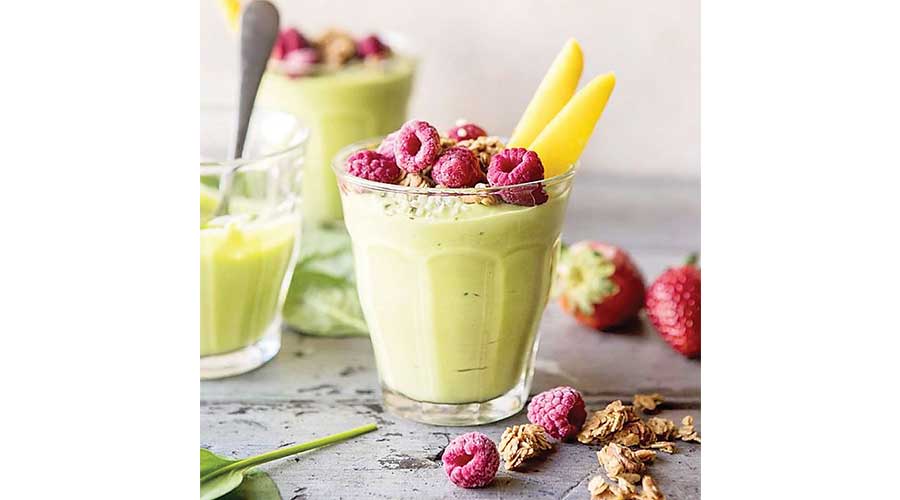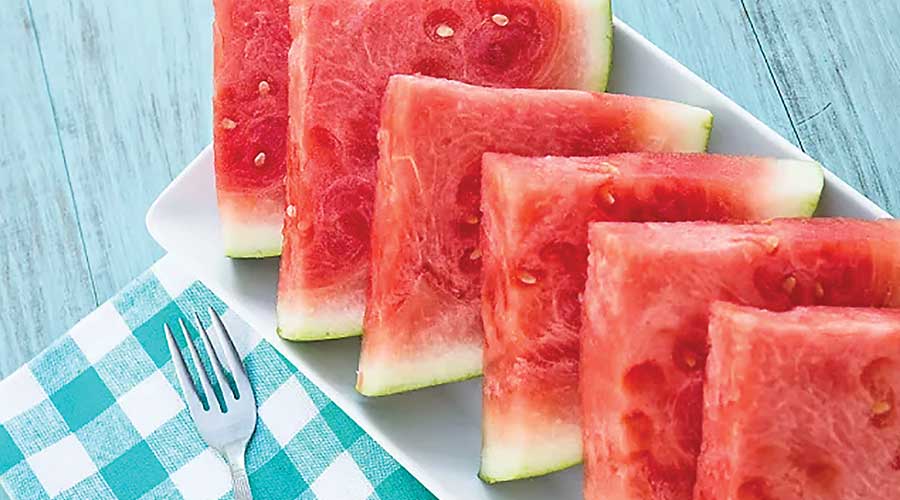The intensity of the summer and the long hours of fasting can be draining, and the body has its ways of letting you know when it’s in need of water. Lethargy starts to set in, energy levels deplete and a lips and the tongue start to feel excessively and annoyingly dry. Chugging glass after glass of water may not be the most practical thing to do but there are ways by which you can hydrate without having to consume water, and that’s why choosing foods with substantial water content.
Drink milk
This re-hydrator is actually a great substitute for water. Have a bowl of cereal after iftar with some milk.
Say no to salty treats
A diet based around processed, salty foods can really dehydrate your body, which your body doesn’t need. Our bodies usually only need a small daily dose of salt, which we can get naturally from veggies and some fruits. So try and skip the fried foods and the cheat meal (which let’s be honest, you have every day) and make better choices. Instead have some coconut water, apple slices or some baby carrots.
Wash your face twice a day
And no more. Over-washing your face can lead to drying your skin out and not the other way around, which is a rather common misconception. Washing your face does not essentially hydrate the skin but it can result in stripping your skin of essential oils and can further de-hydrate your skin. Remember to moisturise after you wash your face though.
Chugging to hydrate
Really, chugging down glass after glass is not the trick and it doesn’t help. When it comes to proper rehydration, a gastrointestinal, vascular and general surgeon, advises, “You should sip water slowly, two to three ounces at a time, throughout the day. If you drink too fast, you risk diluting your blood, which may cause faster excretion of water by the kidneys.” Or in layman’s terms, if you drink water too quickly, it will cause your body to expel most of it as urine, which will have the effect of slowing the hydration process, i.e., the opposite of what you wanted to happen. There really is such a thing as water intoxication, known to doctors as hyponatremia. It all boils down to sodium levels: “One of sodium’s jobs is to balance the fluids in and around your cells. Drinking too much water causes an imbalance, and the liquid moves from your blood to inside your cells, making them swell.” In the case of your brain cells, that’s seriously bad news. Admittedly, you’d have to chug a lot of H2O for this to happen. To be exact, it would require drinking at least a gallon of water within the span of just a few hours for symptoms of hyponatremia to occur and in extreme cases (read: extreeeeeme), this has also resulted in fatalities.
SIP ON SOME TEA
It’s a no brainer. Tea is 100 per cent water, but flavoured with herbs. Try not to add sugar, so you can enjoy the benefits. Herbal teas are best.

HAVE SOUPS
Soup is an essential starter at any iftar table. If you have the option, choose a clear soup rather than a creamy one and start your meal with a nice hot bowl. It’s a great way to boost your water intake and energy levels and will keep your body full of water.

WHIP UP A SMOOTHIE
Pick some fruit with high water content such as oranges, watermelon, apples, pineapples, and peaches and make a smoothie! Instead of adding yogurt or milk, try adding water and some ice instead.

GET YOUR GREENS
Although it is nutritionally quite ineffective, the Iceberg lettuce contains 96 per cent water, and is a great addition to any salad if you want to re-hydrate. So if you aren’t a soup person, break your fast with a tasty salad instead. Add some cucumbers and tomatoes to really boost water levels.

EAT WATERMELONS
A watermelon is made up of 92 per cent water, and eight per cent fruit. The fluids that are found in the watermelon include salt, calcium and magnesium, this is everything your body needs after fasting all day. To add a twist, serve with a lemon juice dressing and feta cheese.

MOISTURISE
Yes, you read that right. Make sure you moisturise your skin to keep it looking fresh and hydrated in the morning. The best time to do this would be right after stepping out of your morning shower and then once again before going to sleep. If you have to be outside, sunscreen is essential to keep the moisture locked in.
[ad_2]
Originally Appeared Here